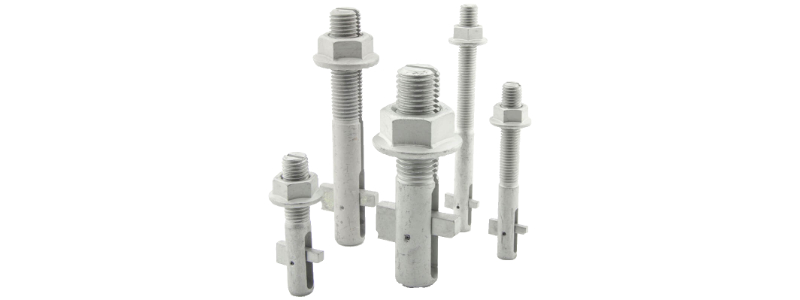Fasteners Used Within the Civil Engineering Sector
Blindbolt UK | 6th July 2021

Blind Bolt Fasteners
There are a number of fasteners used within the civil engineering sector, and as their name suggests, they are used to join (fasten) two or more objects together. In this article, we will take a closer look at what a fastener is, the different types of fasteners that are available.
What are Fasteners?
A fastener is a hardware device that is used to create a permanent or non-permanent joint when affixing two or more objects together. Permanent fasteners include nails and rivets, and non-permanent fasteners include those that are threaded together, such as bolts and screws. Being 'non-permanent,' such fasteners can often be dismantled and removed as required, without damaging the other joining components of the object in question.
Fasteners used in the civil engineering sector are typically made from the following materials:
- Stainless steel
- Carbon steel
- Alloy steel
- Bronze
- Brass
Different types of fasteners are used depending on the construction project, but they all have the same definitive purpose: To provide a strong and safe connection.
Types of construction fasteners include:
- Anchors
- Studs
- Nuts
- Bolts
- Screws
- Washers
What Type of Fastener Do You Need?
The type of fastener you need will depend on the project you are managing. Such fasteners as bolts, washers, and anchors are all used in different ways, depending on circumstances and the unique finishing needed for specific projects. When considering the type of fastener that is needed, several factors need to be taken into account. These include:
- The type of the materials being joined
- The weight of the materials
- The surrounding environment (with attention paid to things such as temperature and corrosive elements)
- The reusability of the fasteners
- Accessibility
Other variables can affect the selection of fasteners. These include labour supply, design considerations, and equipment availability.
Each type of fastener has a different purpose, so research is needed when deciding what type of fastener should be used for each part of the construction project. In some situations, fasteners will also be used in conjunction with one another. Nuts, bolts, washers, and screws are often used together when clamping two or more objects together, for example.
Some fastener materials are more durable than others. Stainless steel fasteners can resist corrosion and heat so are recommended for use in a range of different environments. Aluminium fasteners are known for their excellent weight-to-strength ratio and are often preferred over other types of material.
As you can see, several factors need to be taken into consideration. Commit to research to learn more about each fastener, but consider blind bolts too when planning your project.
Introducing the Blind Bolt
If you need a structural fastener that delivers strength, versatility, and ease of use, the blind bolt can certainly be recommended. Consisting of a steel pin, a sleeve, and a collar, the blind bolt is easy to install and ensures the strong and long-lasting connection that is required for many construction projects.
It isn't the first blind fastener on the market, but thanks to the innovative solutions that it provides, it's now being widely utilised throughout the construction industry for a variety of different purposes.
With more strength than a conventional hex bolt, weld, or rivet, it can handle the jobs that these conventional fasteners can't handle. The blind bolt comes in a number of designs and sizes, and these need to be taken into account when considering the engineering project in question.
What Are Blind Bolts Used for?
Blind bolts were developed to help forge strong connections where standard hex bolts and rivets can't due to factors such as restricted access in tight spaces and are commonly used in applications where fastener strength is vital. they're used within many industries, such as car manufacturing, aeroplane construction, shipbuilding, and bridge-building. In short, any application that needs a strong and long-lasting bond will benefit from a blind bolt.
You can understand more about the blind bolt when looking at these civil engineering solutions. As you can see in the linked article, they are extremely versatile and offer construction managers an efficient and affordable fixing system for their manufacturing projects.
What to Take Away
The civil engineering sector is reliant on a wide range of fasteners, including the blind bolt fasteners that are sold by our business. To determine which is right for you, consider the jobs you need to do, and commit to further research to ensure the fastener you use is appropriate for your particular project.
The civil engineering sector is reliant on a wide range of fasteners including blind bolt fasteners. To determine which fastener type is right for you, consider the jobs you need to do, and commit to further research to ensure that the fastener you use is appropriate for your particular project.
Interested in finding out more about our blind bolts and whether they'd work for you? Check out our guide here. You can also find out more about our blind bolts by contacting the BlindBolt team via our quick and easy contact form below. Alternatively, you can get in touch with a member of our team today on +61 3 9757 4989 or send us an email at enquiries@blindbolt.com.au. We look forward to hearing from you.